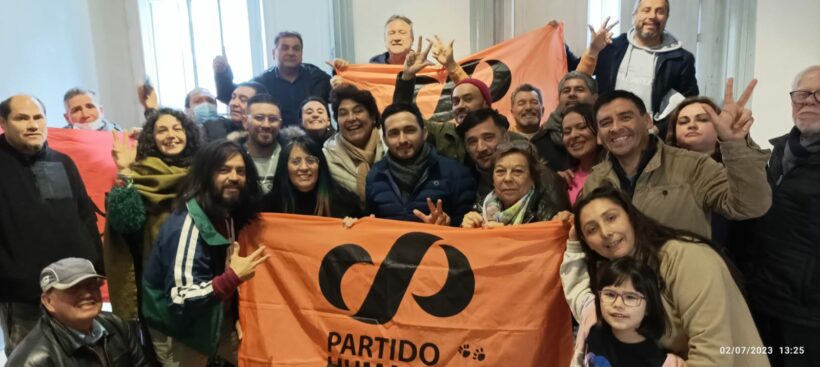The legalisation of the Humanist Party in the Metropolitan Region of Chile is on the right track.
To confront this inhuman system from the electoral field is a great challenge, which some brave people have tried alone or in a list. By going without a list that adds votes, the opportunity for a representative of the social base, organised and conscious, to reach spaces of popular representation in the municipal councils is lost.
The legalisation of the Humanist Party and its electoral intervention, giving space to the social world, comes to remedy and do a little justice in representation, by putting this legal tool at the service of social organisations.
Historically, when a third electoral force emerges, one of the blocs (the closest ideologically) approaches, assimilates and then phagocytizes this “dangerous group” that can generate instability in governance and the “good agreements” that both blocs have generated in order to sustain their privileges.
Hence, with the force of defiance and rebellion, the firm belief is born that we can change the course of fateful events, from the organised social base, a condition from which humanism tries to deploy its rooted political work.
Today we are in a new attempt, without the power of money, without the power of the state, without the power of the mass media, legalising our political tool, the Humanist Party, which is at the service of the oppressed, the excluded, the discriminated, the minorities, who have been marginalised from the decision-making centres of public policies on health, housing, education, work, common spaces, green areas, that is, those issues that affect the daily life of ordinary people.
We have ad-portas, a key electoral calendar in 2024, also in 2025, in which our neighbours, from different neighborhoods and communes that are affected by the decisions, suffering the consequences of bad public policies, cannot be excluded from local power, because they have the ability, knowledge, wisdom, solidarity and, moreover, have the courage to fight, together with their communities, for the demands of the social base.
Hence the importance of legalising the Humanist Party as a political tool to give a voice to the organised social base in each commune of the country.
What needs to be done is no secret
Social agendas today need to give direction to inoperative politics in order to respond to the needs of the excluded majorities. Within the thematic coordinators (disability, feminism, environmentalism, housing, community health, education) the possibility opens up, from the social base, to highlight the problems and concrete political responses necessary to advance in their favourable resolution to specific requirements. In this way, many of the people and social organisations are able to express themselves in these self-convened spaces, making the issues visible and setting in motion joint actions, supported by our party. In this context, we invite everyone to join in this grouping of the people and for the people at the grassroots.
Clean hands to work for change
A party with 39 years of history, without corruption cases and always on the side of the people of Chile, is a reference in a national party political environment plagued by crime and corruption. Our good people are characterised by their absolute social commitment and great capacity for voluntary work, carried out after their working days, making up a party that does not represent the people, but “is the politically organised people”.
The motivation of the humanist militants, who today, in the face of all challenges, continue to move forward, facing the people and with their own resources, is the profound conviction to humanise politics and this worn-out system, which makes society precarious and vainly tries to manage the organisations. We fly on the wings of a bird called “intent” (SILO), which gives us the energy to make the 2024 reinforcement of our legalisation a reality, with the support of all the people violated by the mercantile political elites, in the different communes of the Metropolitan Region, provoking a demonstration effect that will be an example to be followed in other regions of the country.
The determination, the solidarity and the joy of recomposing the networks rooted in the neighbourhoods, will give us the joint achievement of the objective.
Collaborative writing by Ricardo Lisboa Henríquez; M. Angélica Alvear Montecinos; Guillermo Garcés Parada; Sandra Arriola Oporto and César Anguita Sanhueza. Public Opinion Commission










